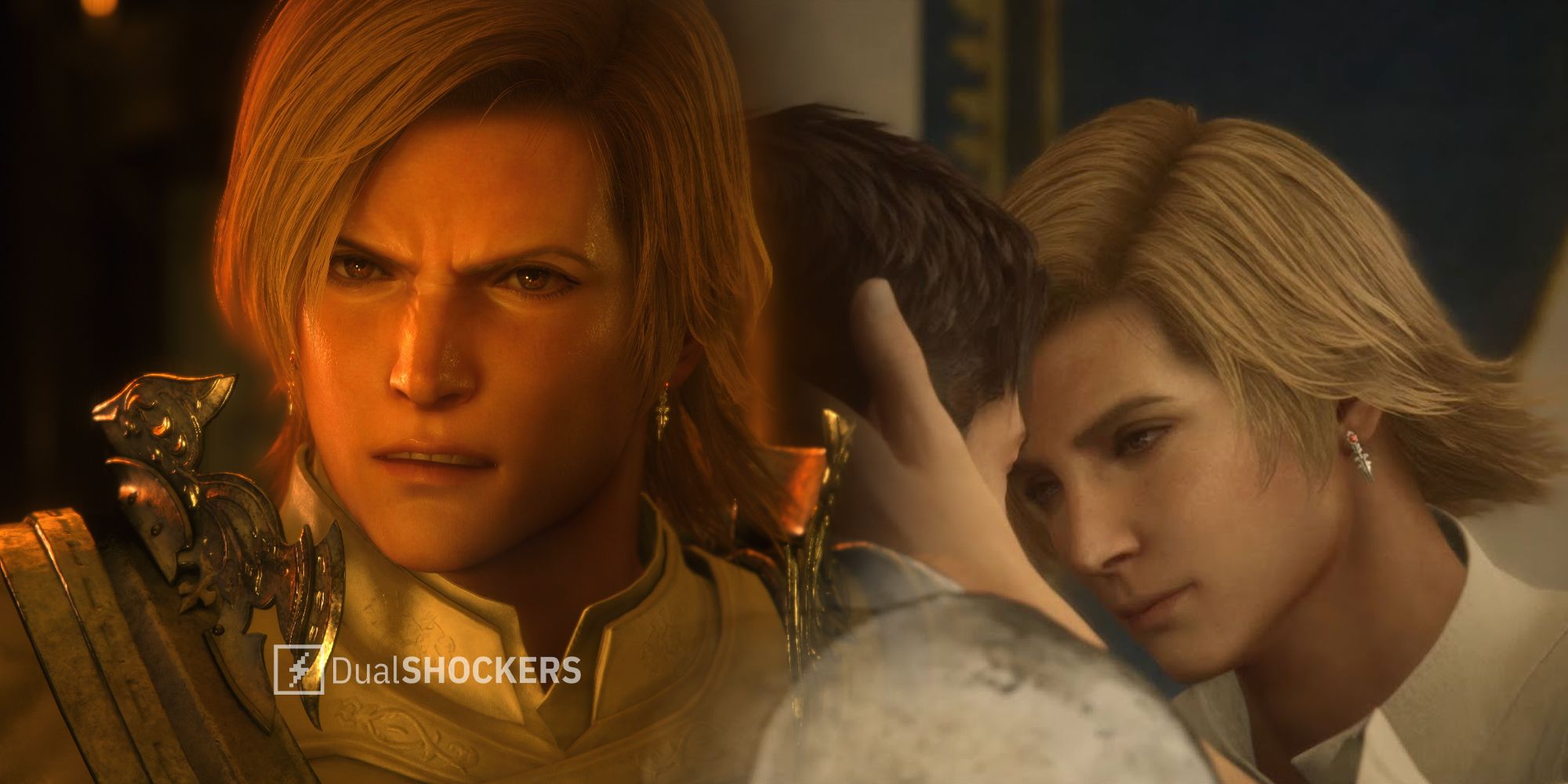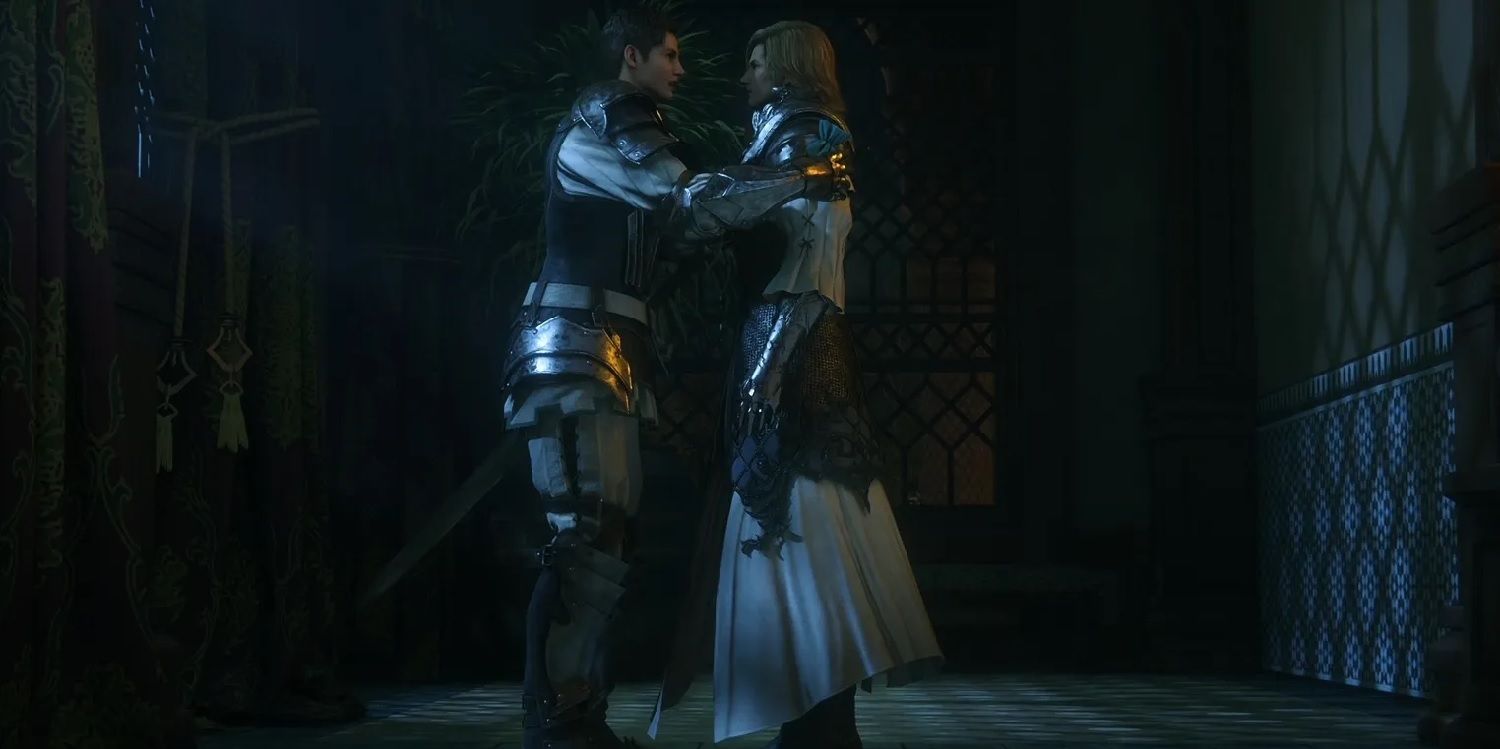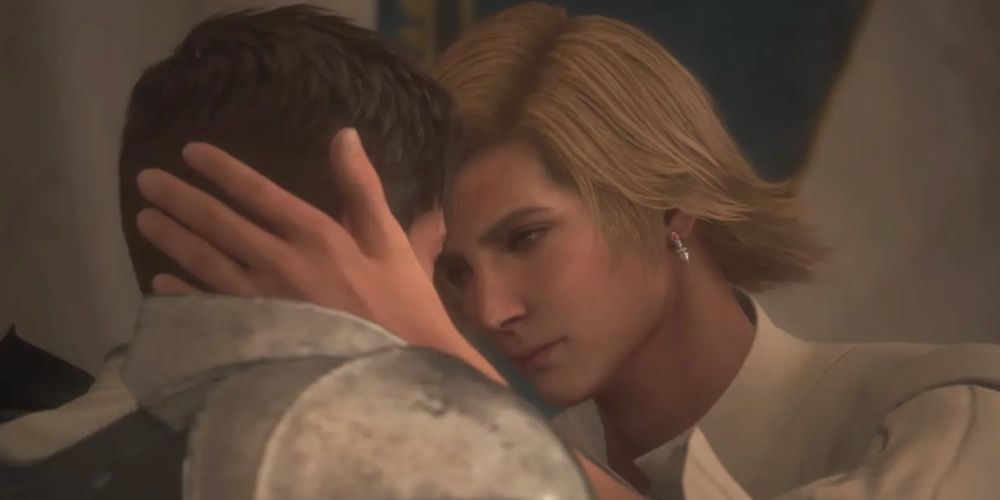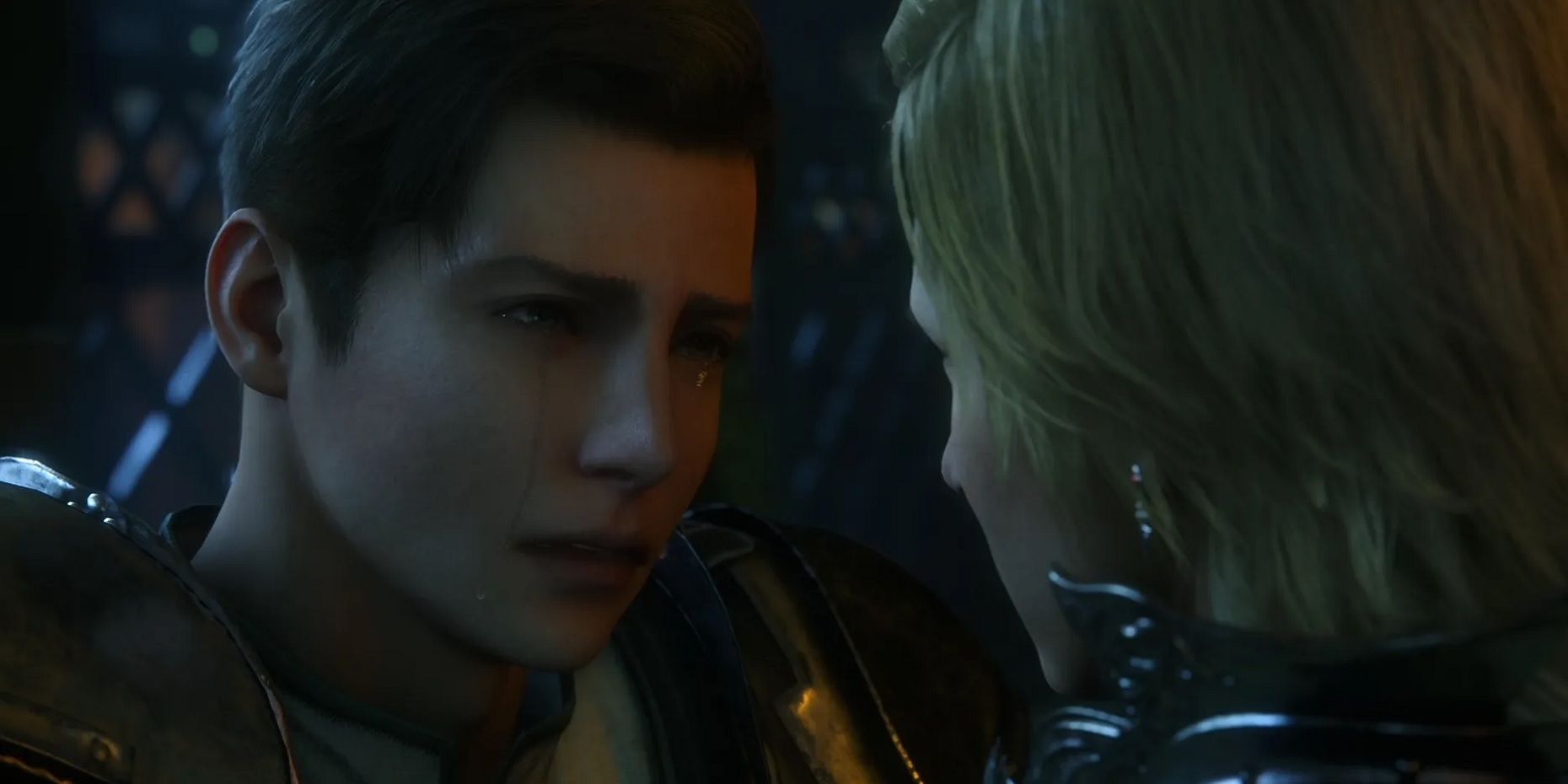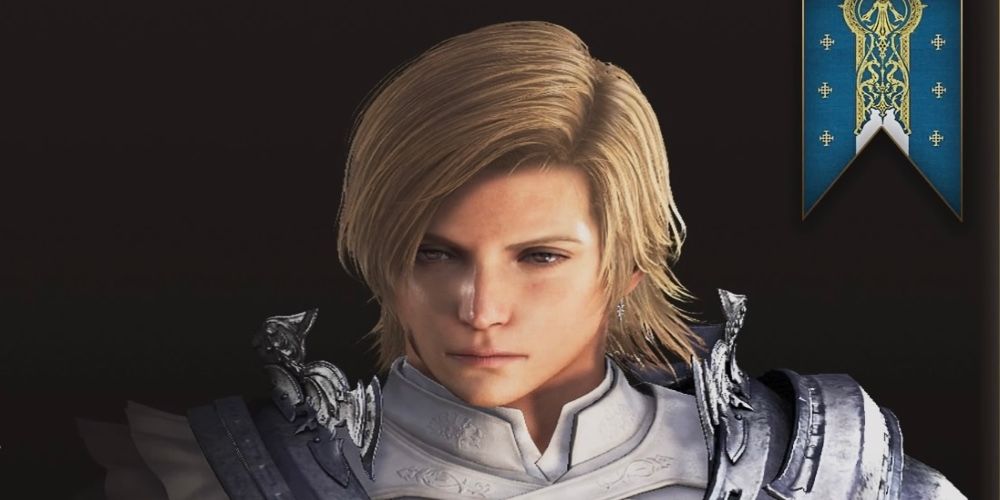Highlights
- Final Fantasy 16 introduces queer representation with the relationship between Dion and Terence..
- Dion is an important character in the game, holding the title of prince and being the Dominant of Bahamut.
- The ending challenges the "bury your gays" trope and brings equality to the heroes' fates.
For 20 years now, I’ve been playing Final Fantasy games. They’ve become a staple to my life, and not a year goes by that I’m not playing one of the entries, and not just because I’ve been playing Final Fantasy 14 since beta. There are many things I’ve come to expect from the series, including a new compelling story to follow and heroes that will bring up a series of emotions within me.
But if there’s one thing I wasn’t expecting when playing Final Fantasy 16, was for two queer male character to share a kiss on screen. Final Fantasy 16 has given us a lot of firsts, including being the first full action main entry in the series. It also gave us Dion.
Dion Lesage is quite important to the overall narrative of Final Fantasy 16. He holds the title of prince in the Holy Empire of Sanbreque. His kingdom’s people love him because he genuinely cares about them. He is also the Dominant of Bahamut, which allows him to tap into the dragon's power and transform into him during battles. And here I'd been. always considering Shiva to be the unofficial queer icon. With a diva-like snap of her finger, she destroyed enemies in Final Fantasy X, with Diamond Dust. But with Dion’s existence, Bahamut is now, in my mind, the official queer icon of the franchise.
Dion has a loyal companion named Sir Terence, and their relationship goes beyond mere friendship—they're actually in love. Terence is head over heels for Dion, and it's evident in how devoted he is to him. I appreciated how much attention was given to their romance, specifically to Terence's commitment to Dion. Instead of just leaving their affair as a passage in the Active Time Lore, the two are shown loving one another. They even kiss!
Two men kissing in a Final Fantasy game blew my mind in the best way possible. In other features, I’ve written about how significant queer identity is to me in video games, and even how Fire Emblem Engage elevated the experience for me earlier this year. There’s an added depth in seeing it happen in a Final Fantasy game, the series that started it all for me back when I first picked up Final Fantasy 8 in high school. It’s strange to say, but in looking at Final Fantasy like a father figure who nurtured my love of RPGs, Dion’s existence felt like the first time that a father truly recognizes and accepts you for exactly who you are.
Validation isn’t enough, however, in the modern realm of video games. Women, people of color, and LGBTQIA+ people are finding more and more representation within video games, and it’s important that we’re represented in thoughtful ways. I believe that Dion was represented in a great way. Dion and Terence treat each other with genuine care and respect. Unlike typical royal and knight relationships, they avoid toxic and abusive patterns. Witnessing their affection for each other is heartwarming.
Dion holds a significant role as leader of the Dragoons. He's been called upon for the Empire's wars, and his first appearance is during the Battle of Belenus Tor (both of which are central battles to 16’s overarching narrative). In a critical conflict with the Dhalmekian Republic, Dion's ability to fight is hindered by the threat of retaliation. Despite his objections, he follows his father's command to negotiate and then destroy the Republic's army. This strains their relationship, and Dion begins to suspect that something or someone is influencing his father in treacherous ways. Luckily, Terence still supports him. As Dion contemplates confronting his father, he's sought by Clive’s brother, Joshua, and his helper, Jote, for their desire to unearth the cause of the conflicts. The choices he makes amid this turmoil will define his journey in the empire and in the story as a whole.
Dion became one of the most important characters to the story. After he accidentally kills his father, brings manic destruction on the kingdom he was trying to protect, and nearly dies, he begins his redemption arc. Coming back to his senses, he joins Clive and the gang on their journey.
During the final parts of the story, Final Fantasy 16 narrows its focus on Clive and Joshua. The two decide to defeat Ultima, the main antagonist and divine being of the game. They must reserve their strength for the upcoming battle, so with the remaining powers he has from Bahamut, Dion decides to help them. “My life ended in the Dominion, I fear death no more,” he says, recalling all the events that happened to him. I admit that this made me wary of how Final Fantasy 16 would represent him in the end.
So here’s the problem with queer representation within media: many times, queer characters fall under the unfortunate trope of “bury your gays.” In short, the queer characters, who usually aren’t in the starring role, will die in some phenomenally badass way, with the audience feeling a strong sense of sadness for this character’s passing, and marking an easy way for writers to bring in diversity and do so in a throwaway manner.
SPOILERS BELOW FOR THE ENDING OF FINAL FANTASY 16
And in the end, he did die in a spectacular manner, opening the way to Ultima and the final dungeon. This upset me to no end, and I admit that I became disconnected with the story after that. And if the ending hadn’t shifted much of my understanding of the story, I’d be writing a differently toned article.
There was no happy ending, and both Clive and Joshua passed as well. It rewrote the story of all three men as tragic figures, not just the queer character. Death became an equal fate that not even the main characters themselves could avoid. In the larger scope of things, I found peace in all of them dying…as strange as that sounds. As a queer gamer, I found solace in the equality of death.
There is story potential for DLC in Final Fantasy 16, especially with developer Naoki Yoshida thinking about it recently. I would personally love to see more of Dion’s story unfold within it. I’d also love to see what happened to Terrence, after Dion ordered him to leave, during a tearful scene in which they both said goodbye, without saying the actual words. Only time will tell how the devs decide to develop the game as a whole, and how queer representation will be depicted within the series moving forward.

